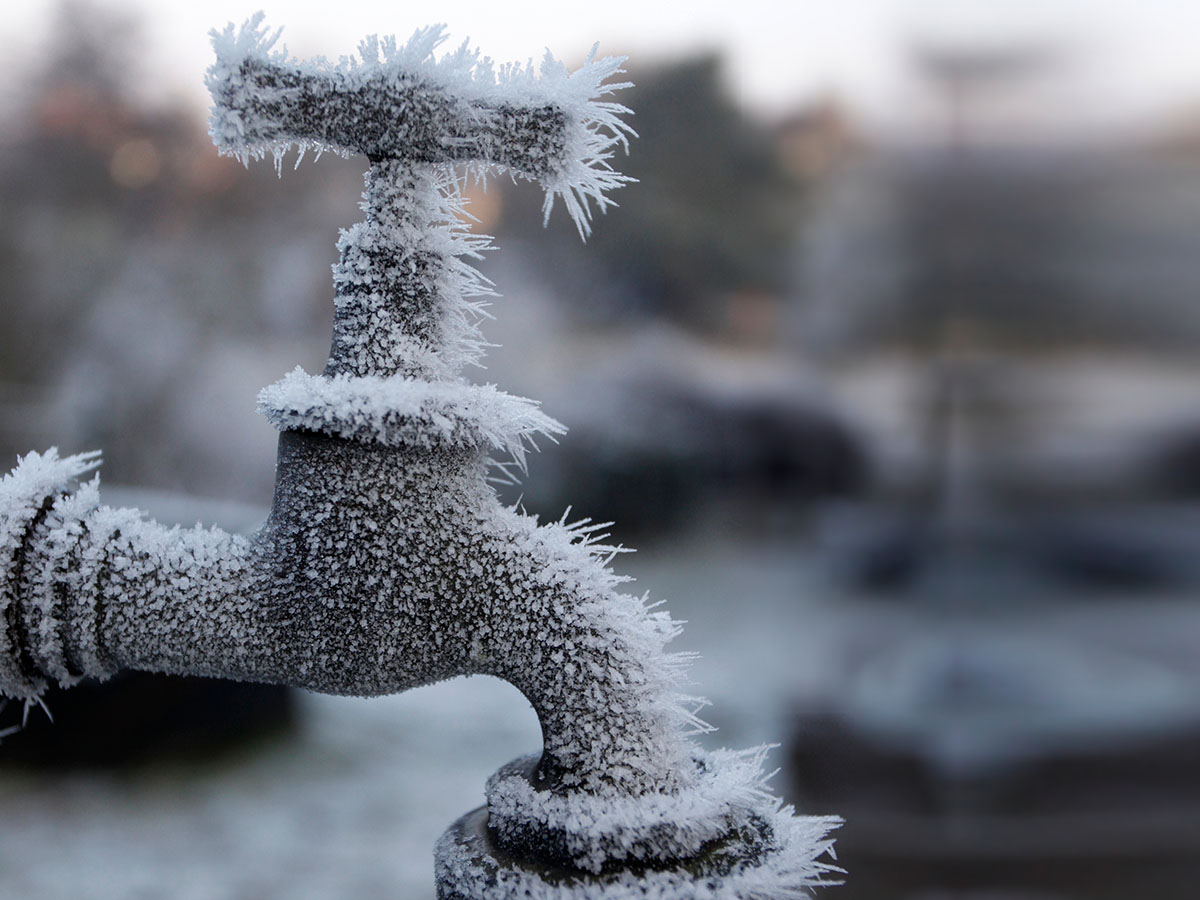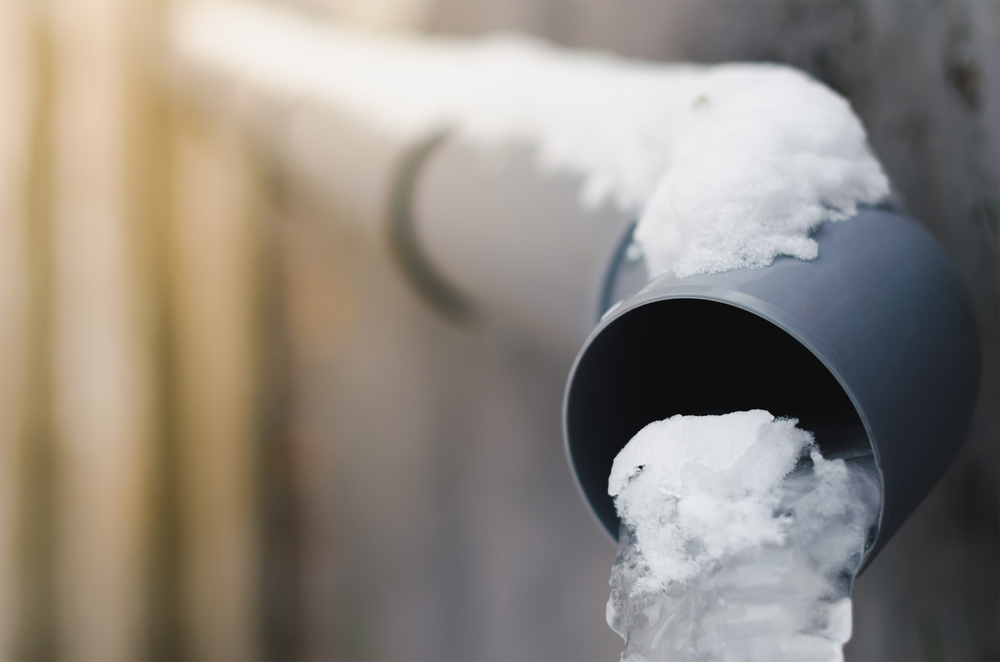Essential Advice to Protect Against Frozen Plumbing in Winter
Essential Advice to Protect Against Frozen Plumbing in Winter
Blog Article
Do you find yourself on the lookout for facts and techniques concerning How to Prevent Your Pipes From Freezing?

Cold weather can ruin your plumbing, especially by freezing pipelines. Below's how to avoid it from taking place and what to do if it does.
Intro
As temperatures drop, the risk of frozen pipelines rises, potentially resulting in expensive fixings and water damages. Recognizing just how to stop icy pipelines is critical for home owners in cool environments.
Recognizing Icy Pipes
What causes pipelines to ice up?
Pipelines freeze when revealed to temperature levels listed below 32 ° F (0 ° C) for extended periods. As water inside the pipelines freezes, it expands, taxing the pipe wall surfaces and possibly causing them to rupture.
Risks and problems
Frozen pipelines can result in water supply disturbances, building damage, and pricey repair work. Ruptured pipes can flooding homes and trigger considerable architectural damages.
Indicators of Frozen Water Lines
Determining icy pipelines early can prevent them from bursting.
How to identify frozen pipes
Try to find lowered water flow from taps, uncommon odors or sounds from pipelines, and noticeable frost on revealed pipes.
Prevention Tips
Protecting vulnerable pipes
Wrap pipes in insulation sleeves or use heat tape to protect them from freezing temperature levels. Concentrate on pipelines in unheated or outside areas of the home.
Home heating strategies
Keep interior spaces sufficiently heated up, especially locations with plumbing. Open up cupboard doors to allow cozy air to distribute around pipelines under sinks.
Shielding Outside Plumbing
Yard hoses and exterior faucets
Separate and drain yard hoses prior to winter. Set up frost-proof spigots or cover outside taps with insulated caps.
What to Do If Your Pipes Freeze
Immediate activities to take
If you suspect icy pipelines, maintain faucets available to relieve pressure as the ice thaws. Make use of a hairdryer or towels soaked in warm water to thaw pipelines slowly.
Long-Term Solutions
Architectural adjustments
Take into consideration rerouting pipes away from exterior walls or unheated areas. Add added insulation to attic rooms, cellars, and crawl spaces.
Updating insulation
Invest in premium insulation for pipes, attics, and walls. Proper insulation helps maintain regular temperature levels and reduces the risk of icy pipelines.
Final thought
Avoiding frozen pipelines needs positive steps and fast actions. By understanding the reasons, indications, and preventive measures, home owners can secure their plumbing throughout winter.
Helpful Tips to Prevent Frozen Pipes this Winter
UNDERSTANDING THE BASICS: WHY PIPES FREEZE AND WHY IT’S A PROBLEM
Water freezing inside pipes is common during the winter months, but understanding why pipes freeze, and the potential problems it can cause is crucial in preventing such incidents. This section will delve into the basics of why pipes freeze and the associated problems that may arise.
THE SCIENCE BEHIND FROZEN PIPES
When water reaches freezing temperatures, it undergoes a physical transformation and solidifies into ice. This expansion of water as it freezes is the primary reason pipes can burst. As the water inside the pipe freezes, it expands, creating immense pressure on the walls. If the pressure becomes too great, the pipe can crack or rupture, leading to leaks and water damage.
FACTORS THAT CONTRIBUTE TO PIPE FREEZING
Low Temperatures: Extremely cold weather, especially below freezing, increases the risk of pipes freezing. Uninsulated or Poorly Insulated Pipes: Pipes located in unheated areas, such as basements, crawl spaces, or attics, are more prone to freezing. Insufficient insulation or lack of insulation altogether exacerbates the problem. Exterior Wall Exposure: Pipes running along exterior walls are susceptible to freezing as they encounter colder temperatures outside. Lack of Heating or Temperature Regulation: Inadequate heating or inconsistent temperature control in your home can contribute to frozen pipes. PROBLEMS CAUSED BY FROZEN PIPES
- Pipe Bursting: As mentioned earlier, the expansion of water as it freezes can cause pipes to burst, resulting in significant water damage.
- Water Damage: When pipes burst, it can lead to flooding and water damage to your property, including walls, ceilings, flooring, and personal belongings.
- Structural Damage: Prolonged exposure to water from burst pipes can compromise the structural integrity of your home, leading to costly repairs.
- Mold and Mildew Growth: Excess moisture from water damage can create a favorable environment for mold and mildew growth, posing health risks to occupants.
- Disrupted Water Supply: Frozen pipes can also result in a complete or partial loss of water supply until the issue is resolved.
WHY CERTAIN PIPES ARE MORE PRONE TO FREEZING
- Location: Pipes located in unheated or poorly insulated areas, such as basements, crawl spaces, attics, or exterior walls, are at higher risk of freezing.
- Exterior Pipes: Outdoor pipes, such as those used for irrigation or exposed plumbing, are particularly vulnerable to freezing as they are directly exposed to the elements.
- Supply Lines: Pipes that carry water from the main water supply into your home, including the main water line, are critical to protect as freezing in these lines can affect your entire plumbing system.
- Underground Pipes: Pipes buried underground, such as those connected to sprinkler systems or outdoor faucets, can be susceptible to freezing if not properly insulated.
https://busybusy.com/blog/helpful-tips-to-prevent-frozen-pipes-this-winter/

As an enthusiastic reader about 6 Ways to Prevent Frozen Pipes, I think sharing that post was a great idea. Do you know another individual who is fascinated about Helpful Tips to Prevent Frozen Pipes this Winter? Take a moment to promote it. Thank you for being here. Please check our site back soon.
Go Deal Now Report this page